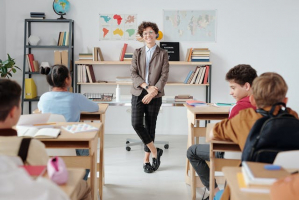Top 16 Common Questions When Applying for Special Education Assistant and Answers
Learn what skills and qualities interviewers are looking for from a special education teacher assistant, what questions you can expect, and how you should go ... read more...about answering them. Please refer to those questions through the article below of Toplist.
-
Rationale: Special education teacher assistants need certification to work with students with special needs. Employers ask about this to ensure you have the required certification. Before your interview, check if a specific certification is needed. If yes, confirm you have it; if not, express your readiness to obtain it.
Answer: Certainly, I am certified to assist special needs students. I hold a Special Education Bachelor's degree and a California state certification for Special Education Teacher Assistants. My diverse experience includes working with students of different ages, abilities, and backgrounds. I can create personalized learning plans tailored to each student's unique needs and goals. Additionally, I've supported teachers in classrooms and am well versed in assistive technology for enhancing access to curriculum and maximizing students' potential.

Photo by Zen Chung via pexels 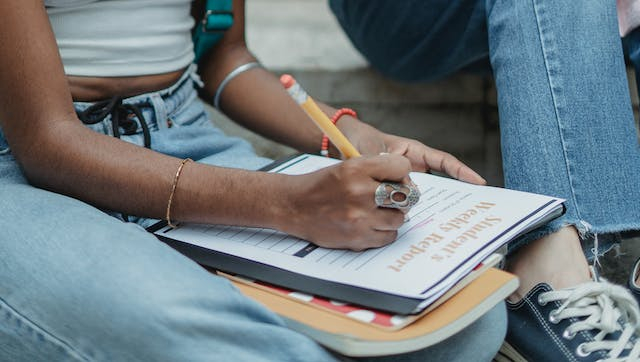
Photo by Zen Chung via pexels -
Rationale: Employers ask this question to gauge your readiness for the demands of a special education classroom. They seek insight into your experience with challenges and your problem solving skills. Highlight two or three specific difficulties you've faced as a special education teacher assistant, and elaborate on the strategies you employed to overcome these obstacles.
Answer: Being a special education teacher assistant poses challenges, with a significant one being the management of individual student needs. Each student comes with unique learning styles and challenges, demanding tailored support. From offering extra help in class activities to crafting personalized educational plans, my role is pivotal. Another hurdle is staying current with the ever evolving field. Continuous learning is essential as special education regularly introduces new strategies. Remaining informed about pertinent laws ensures we adapt to regulations shaping our interactions with students.
Photo by Pixabay via pexels 
Photo by Mikhail Nilov via pexels -
Rationale: Addressing disruptive behavior in special education settings demands a nuanced approach. In my experience, when faced with a disruptive student, I prioritize understanding the root cause. For instance, I encountered a student who became agitated during group activities. After identifying that the environment overwhelmed them, I initiated a calming technique, allowing a short break in a quieter space. In another instance, a student exhibited disruptive behavior due to difficulty grasping a particular concept. Employing a proactive strategy, I adjusted the teaching approach, providing additional support and breaking down the material into more manageable segments. This not only diffused the disruption but also helped the student re engage with the task. In summary, my response to disruptive behavior involves pinpointing triggers, implementing tailored calming methods, and adapting teaching strategies to foster a positive and focused learning environment.
Answer: Handling disruptive student behavior requires a composed and professional approach. I prioritize understanding the root cause by assessing the situation. Once identified, I collaborate with the student to develop effective strategies, such as positive reinforcement or redirection. If needed, I consult with school staff to ensure comprehensive support. Maintaining a calm demeanor and fostering proactive solutions are key aspects of my approach to managing challenging behaviors.
Photo by RDNE Stock project via pexels 
Photo by RDNE Stock project via pexels -
Rationale: Special education teachers often work with students who have physical disabilities, such as cerebral palsy or muscular dystrophy. Interviewers ask this question to see if you have experience working with these types of disabilities and how you would handle a classroom full of special needs students. In your answer, explain what type of disability the student had and how you helped them in the classroom.
Answer: I bring extensive experience supporting students with physical disabilities as a Special Education Teacher Assistant. My current role involves providing personalized one-on-one assistance, aiding in tasks that pose challenges. Collaborating with teachers, I contribute to tailored lesson plans addressing each student's needs. Attending relevant training sessions has enhanced my understanding of best practices for serving students with physical disabilities, ensuring they receive necessary resources for success. Building strong relationships with students' families has been crucial, allowing me to comprehend individual needs and guarantee the provision of proper care and attention.
Photo by RDNE Stock project via pexels 
Photo by RDNE Stock project via pexels -
Rationale: Special education teachers often work with students who have learning disabilities or other challenges that make it difficult for them to read. The interviewer may ask this question to learn more about your experience working with special needs students and how you can help them succeed in the classroom.
Answer: I recently supported a third grade student struggling with reading. Starting with an assessment, I crafted a personalized plan focusing on phonemic awareness and decoding skills. Progressing from simple to complex words, we used positive reinforcement, visual aids, and consistent practice. After a few weeks, the student independently read short stories, a rewarding experience, knowing I contributed to their significant progress.
Photo by RDNE Stock project via pexels 
Photo by RDNE Stock project via pexels -
Rationale: Special education teachers often work with students who have behavioral issues. The interviewer wants to know how you would handle a challenging situation and ensure that the student is still learning despite their behavior. In your answer, explain what steps you would take to help the student focus on their work while also maintaining control of the classroom.
Answer: In handling a student reluctance to work, my approach centers on empathy and understanding. I'd begin by listening to the student to grasp the underlying issues. Following this, I'd collaboratively devise a plan, which might involve giving space or offering an alternative activity for comfort. Emphasizing positive reinforcement, I aim to build strong student relationships within a safe and respectful environment. If needed, involving the broader support team, including the special education teacher or school counselor, ensures comprehensive assistance for the student's well being.
Photo by RDNE Stock project via pexels 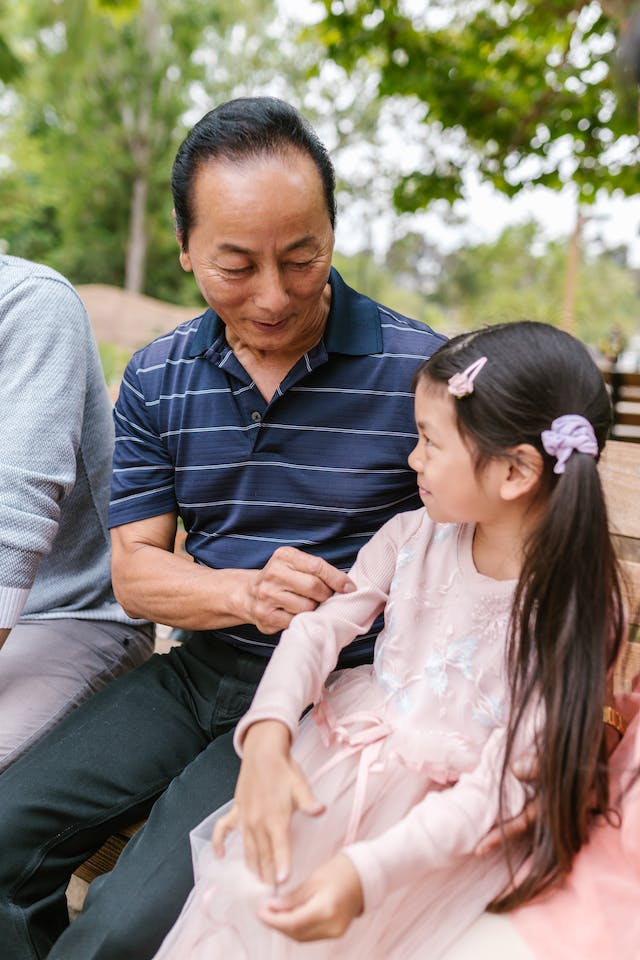
Photo by RDNE Stock project via pexels -
Rationale: This question can help an interviewer determine how you would handle conflict and whether you have the ability to report abuse. In your answer, try to show that you value students’ well-being over any personal relationships with other staff members.
Answer: If I observed another special education teacher assistant or teacher misusing their authority with a student, my immediate concern would be the safety and well being of the student. Depending on the situation, I would intervene directly if it was safe, or report the incident to the appropriate authorities. Creating a safe and respectful environment for students is fundamental to my approach. As a special education teacher assistant, advocating for the rights of all students is part of my responsibility. Any instance of abuse would prompt me to take action to protect the student and ensure they receive the best possible care.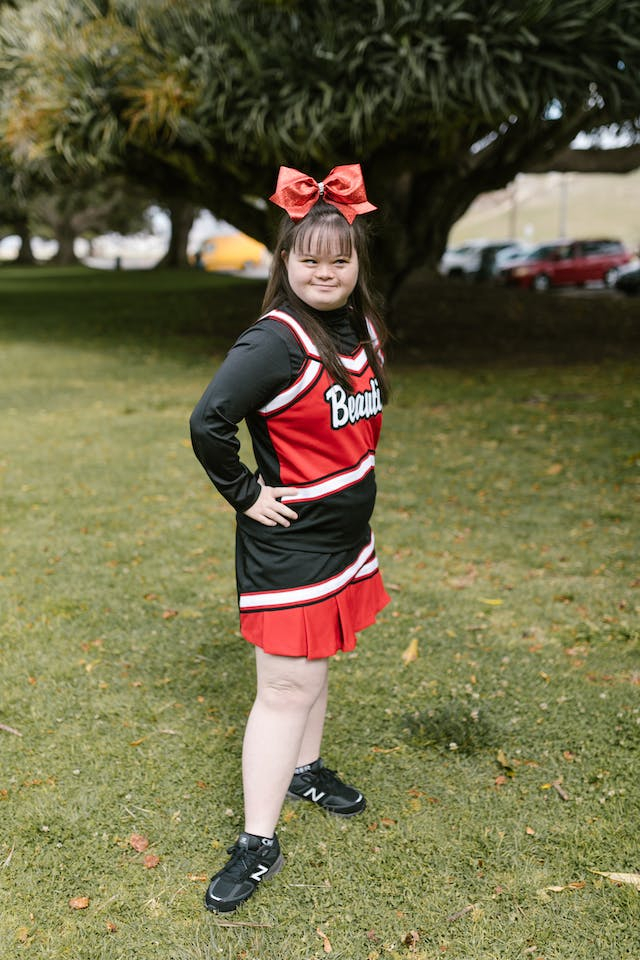
Photo by RDNE Stock project via pexels 
Photo by RDNE Stock project via pexels -
Rationale: The interviewer may ask this question to assess your knowledge of the state’s special education laws and regulations. Special education teachers often need to understand these laws, so it can be important for a teacher assistant to have an understanding as well. In your answer, try to show that you know how to apply these laws in your work with students.
Answer: I possess a comprehensive understanding of special education laws in your state, having completed courses and workshops to stay current. I am well versed in the Individuals with Disabilities Education Act (IDEA) and its impact on students with disabilities. Recognizing the significance of adhering to local, state, and federal guidelines, I am adept at providing quality services. I excel in accurately and timely documenting student progress and am familiar with various assessments for evaluating needs and determining suitable interventions.
Photo by RDNE Stock project via pexels 
Photo by RDNE Stock project via pexels -
Rationale: Special education teachers often work with students who have a variety of learning disabilities. The interviewer may ask this question to see if you have experience working with autistic children and how you handled the situation. Use your answer to highlight any skills or techniques that helped you support these students in the past.
Answer: Absolutely, I bring extensive experience supporting students with autism in my role as a Special Education Teacher Assistant. My focus involves nurturing their communication, social, and academic skills. I'm deeply passionate about guiding these students toward reaching their full potential and witnessing progress across various aspects of their lives. Recognizing the uniqueness of each student, I implement individualized learning approaches. Creating a safe and supportive environment is paramount, fostering a space where students feel at ease expressing themselves and embracing challenges. I integrate evidence-based strategies like Applied Behavior Analysis (ABA) to facilitate the learning and development of my students.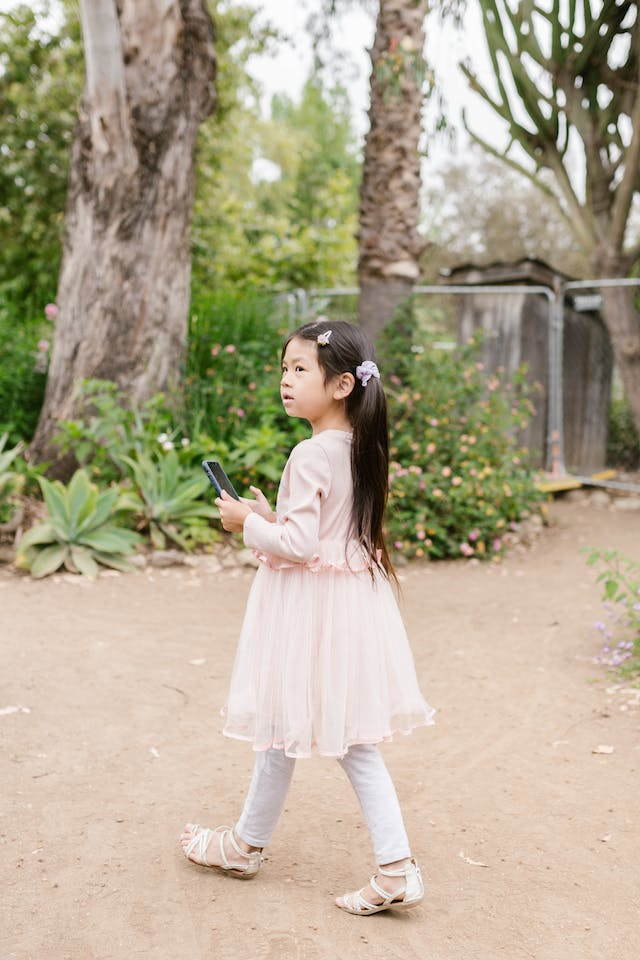
Photo by RDNE Stock project via pexels 
Photo by RDNE Stock project via pexels -
Rationale: Special education teachers often work with small groups of students to help them learn and develop. The interviewer may ask this question to understand how you plan lessons for these smaller groups. In your answer, explain the number of students that you feel comfortable working with in a group setting. Explain why you chose this number and what challenges you might face if you had to teach larger or smaller groups of students.
Answer: In my experience, an optimal size for a small group of students is between three and five. This balance allows for ample individual attention while enabling effective overall group management. With this size, each student can actively participate and ask questions without feeling overwhelmed. Fewer than three students may lead to reduced engagement, while exceeding five can pose challenges in maintaining focus and productivity.

Photo by RDNE Stock project via pexels 
Photo by RDNE Stock project via pexels -
Rationale: Special education teachers often work with parents to ensure their child is getting the best education possible. Parents may have questions about their child’s progress or how they can help at home. A hiring manager might ask this question to see if you know how to communicate effectively with parents and other stakeholders. In your answer, explain that you would make sure to always send weekly updates to parents. You could also mention that you would encourage parents to call or email you with any concerns they have.
Answer: Recognizing the significance of effective parent communication, my approach is comprehensive. First and foremost, I prioritize building strong relationships by understanding each family's unique needs through one on one meetings or group discussions. Clarity is paramount, so I ensure all communication is clear and concise, using easily understandable language. Timely and consistent updates on a child's progress are crucial. Embracing technology, I leverage online platforms like email, video conferencing, and text messaging to streamline communication and foster continuous connection between educators and parents.

Photo by RDNE Stock project via pexels 
Photo by RDNE Stock project via pexels -
Rationale: Special education teachers often work with students who have a variety of learning disabilities. The interviewer may ask this question to learn more about your experience working with special needs students and how you can help them succeed in the classroom. Use examples from past experiences to highlight your ability to support students with sensory processing disorders.
Answer: With significant experience in diverse settings, including public and private schools and residential treatment centers, I've specialized in working with students with sensory processing disorders. My approach revolves around crafting individualized plans that cater to each student's unique needs. Creating a safe and comfortable environment is paramount in my methodology. I emphasize structure and consistency while incorporating flexibility when necessary. Positive reinforcement techniques play a pivotal role in motivating students to achieve their goals. Collaboration with parents and other professionals is integral to ensure comprehensive and tailored support for each student's needs.

Photo by RDNE Stock project via pexels 
Photo by RDNE Stock project via pexels -
Rationale: Employers ask this question to learn more about your qualifications and how you can contribute to their team. When answering this question, it can be helpful to highlight a skill or experience that makes you unique from other candidates. You may also want to mention any skills you have that will help you succeed in the role.
Answer: My five years as a Special Education Teacher Assistant, combined with a Bachelor's degree in Special Education, set me apart for this position. I've excelled in providing support both individually and in group settings. Building strong relationships with students, parents, and staff is a cornerstone of my approach, facilitating effective instruction and guidance. My educational background equips me to develop creative strategies, and my passion drives me to create positive, tailored learning environments for each student to reach their full potential.

Photo by RDNE Stock project via pexels 
Photo by RDNE Stock project via pexels -
Rationale: Special education educators frequently collaborate with small student groups to facilitate learning and skill development. During an interview, you may be asked about your preferred teaching methods and the rationale behind your choices. Feel free to discuss several techniques that you find particularly impactful, providing insight into how these approaches contribute to student learning and development.
Answer: When working with small groups of students, I favor employing a blend of instructional methods. My primary strategy involves delivering direct instruction and guidance while affording students the opportunity to explore their own ideas and interests. This approach not only fosters critical thinking skills but also promotes collaboration among group members. In addition, I integrate hands-on activities, such as games or projects, into the learning experience. These activities empower students to apply their acquired knowledge in a more interactive and engaging manner. Lastly, I emphasize the importance of continuous feedback and support throughout the learning journey to facilitate student success. Through a combination of positive reinforcement and constructive criticism, I aim to create an environment where students feel secure taking risks and learning from their mistakes.

Photo by RDNE Stock project via pexels 
Photo by RDNE Stock project via pexels -
Rationale: This question can help interviewers understand how you view your role in the classroom and what skills you think are most important to have as a special education teacher’s assistant. When answering this question, it can be helpful to focus on specific actions or behaviors that show your understanding of the job and highlight your relevant experience.
Answer: The primary role of special education teacher assistants in supporting classroom teachers lies in cultivating a positive and inclusive learning atmosphere. This entails delivering personalized instruction to students, assisting in maintaining their focus on tasks, and advocating for their individual needs. Building robust connections with both students and teachers is crucial to fostering an environment where everyone feels comfortable and supported. Additionally, taking a proactive approach to promptly address any emerging issues or concerns is essential. Through these concerted efforts, we can guarantee that all students have unfettered access to the resources indispensable for their success.

Photo by RDNE Stock project via pexels 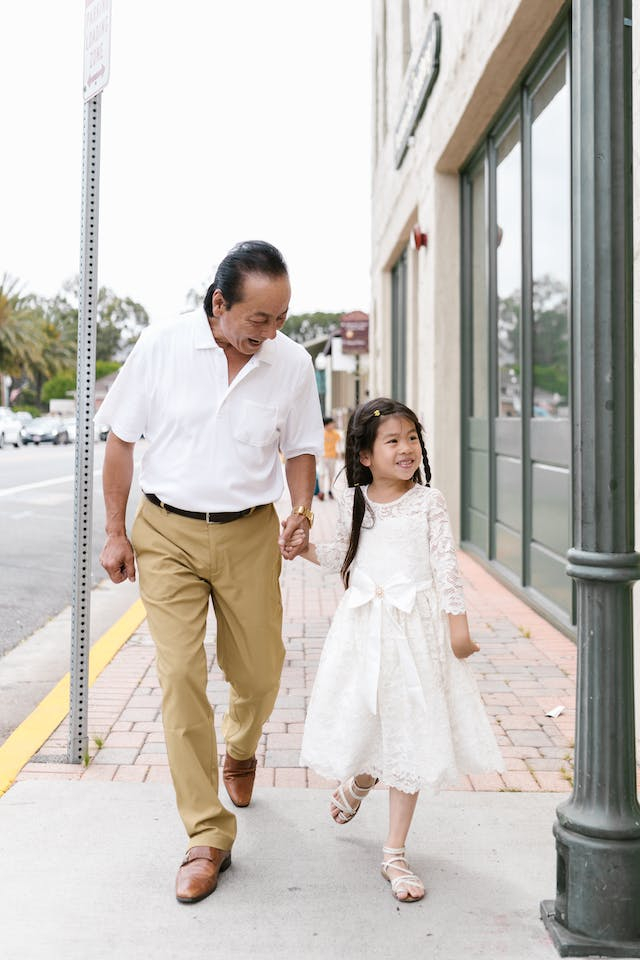
Photo by RDNE Stock project via pexels -
Rationale: Interviewers may pose this question to gain insights into your communication skills and the regularity of your interactions with teachers. When responding, reflect on the frequency of your meetings with special education teachers in the past and articulate the rationale behind your chosen schedule.
Answer: I advocate for regular meetings between special education teacher assistants and teachers to discuss student progress. This practice is crucial to ensuring that every student receives optimal support and instruction. I believe a minimum of one monthly meeting is essential, although the frequency can be adjusted based on the specific needs of the students. These sessions provide a platform to review each student's individualized education plan (IEP) and implement necessary modifications according to their current progress. Additionally, the meetings offer an opportunity to strategize on assisting students requiring extra help or attention. Ultimately, these collaborative discussions serve as a valuable platform for sharing ideas and enhancing our collective efforts to best serve our students.

Photo by RDNE Stock project via pexels 
Photo by RDNE Stock project via pexels






















